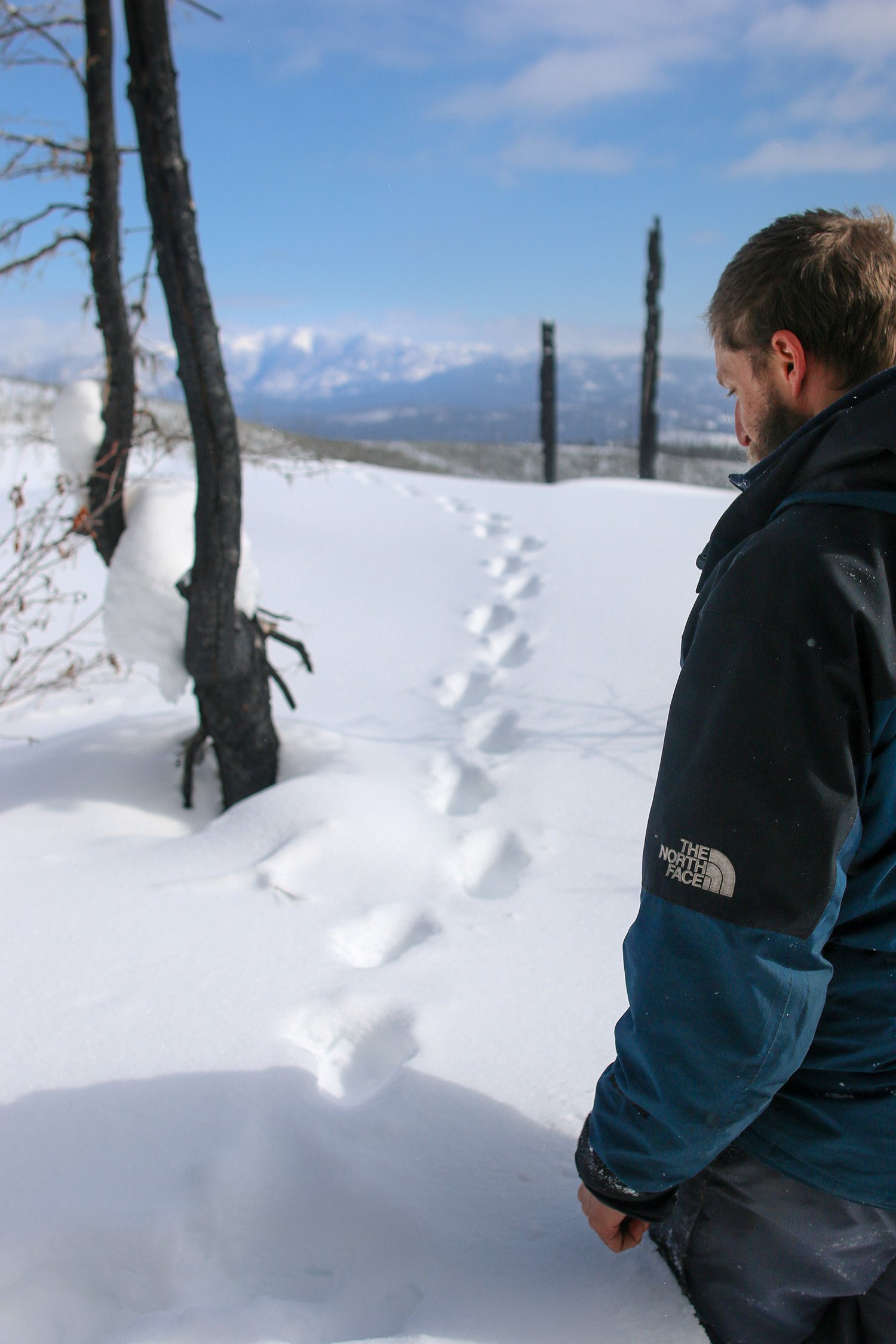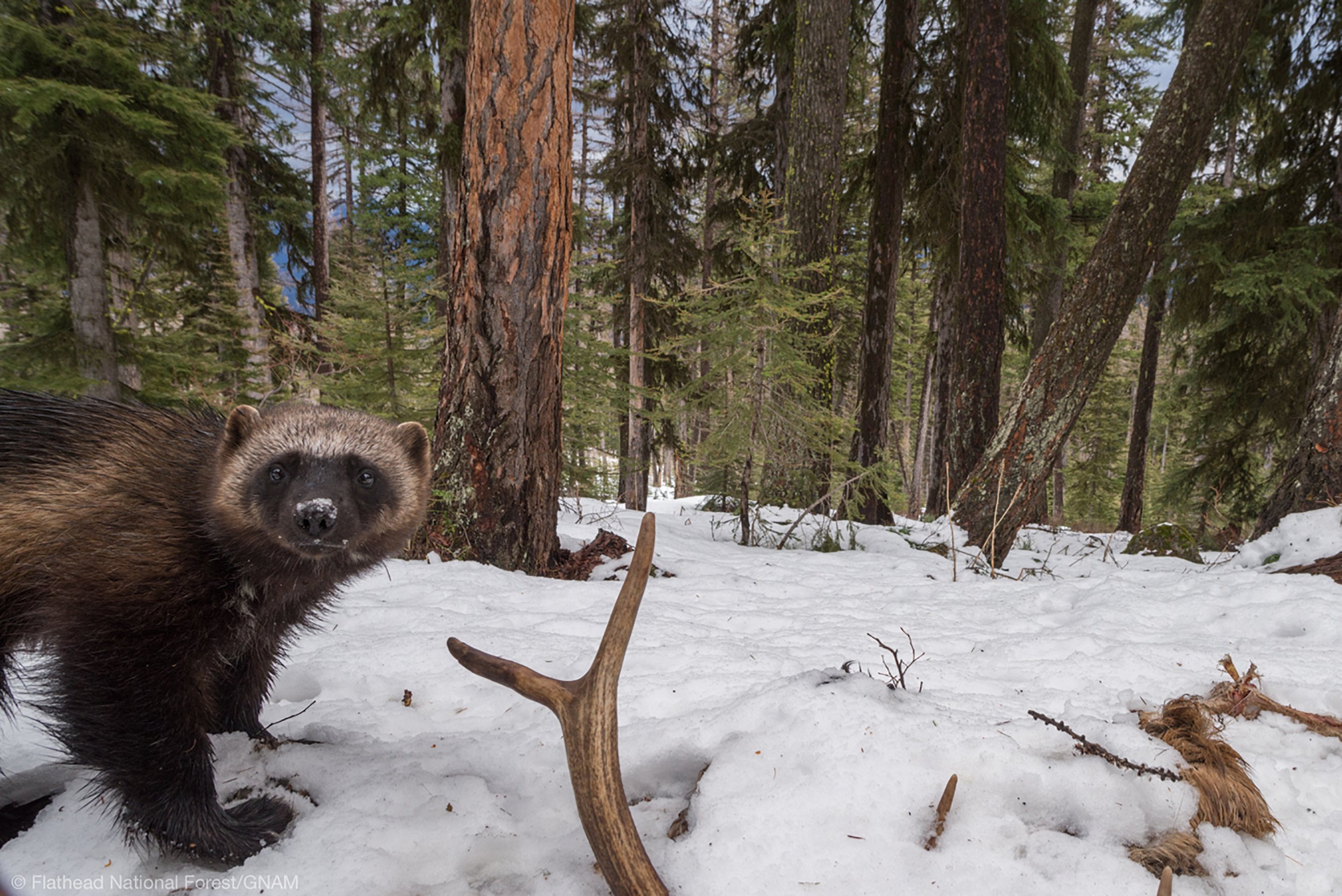
Rare Carnivores
• Nov 29, 2023: Wolverine listed as "threatened" under the Endangered Species Act
• Nov 29, 2023: Wolverine listed as "threatened" under the Endangered Species Act
Since the 1990s we have been monitoring the existence and distribution of rare carnivores in the Swan Valley. In the early years, we conducted track surveys in snowy winter conditions for rare carnivores such as Canada lynx, fisher, marten and wolverine.
A Collaborative Effort
As the interest in these carnivores escalated, a collaborative effort focused on obtaining more concrete data on the distribution, abundance and genetics of these carnivores was formed.
From 2012-2016, SVC partnered with other entities on the Southwestern Crown Collaborative Carnivore Monitoring Project. Here is the Final Baseline Report of 2013-2016 (PDF).
SVC continues to partner with other entities to monitor rare carnivores in the Southwestern Crown of the Continent. From 2018-2023, SVC has collaborated with the Nature Conservancy and the U.S. Forest Service to monitor carnivores in and around the Clearwater/Blackfoot Project area.
VIEW THE “RARE CARNIVORE MONITORING IN THE SOUTHWESTERN CROWN OF THE CONTINENT: FINAL REPORT 2012-2022” BELOW!
Project Objectives
Monitor landscape changes to carnivore populations during implementation of the Collaborative Forest Restoration Program and beyond
Develop a better understanding of the distribution and relative abundance of rare carnivores across the project area
Collect empirical information upon which to base management decisions and inform conservation strategies
Collect genetic material from the three focal species which will establish important baseline information (individual ID & sex, sub-population genetics) and add to the existing body of knowledge of these species in the Northern Rockies
Better understand travel routes and coarse habitat selection for these species
Complement ongoing research and monitoring efforts in the region
Identify "hot spots" where more intensive research could be conducted (e.g. GPS collar deployment to study specific habitat use)
Make a concerted effort to survey roadless and wilderness efforts that have received very little survey effort to date
Raise community awareness/increase support among partners and the general public for forest carnivore conservation
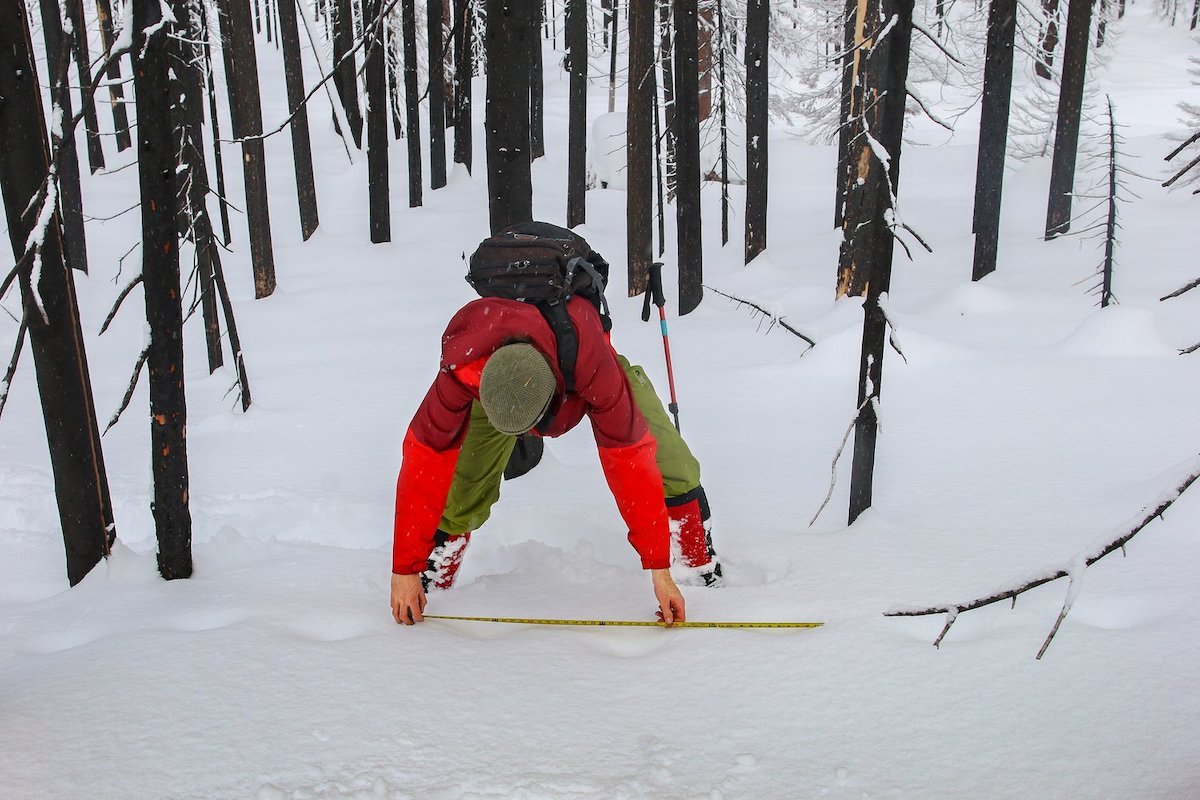

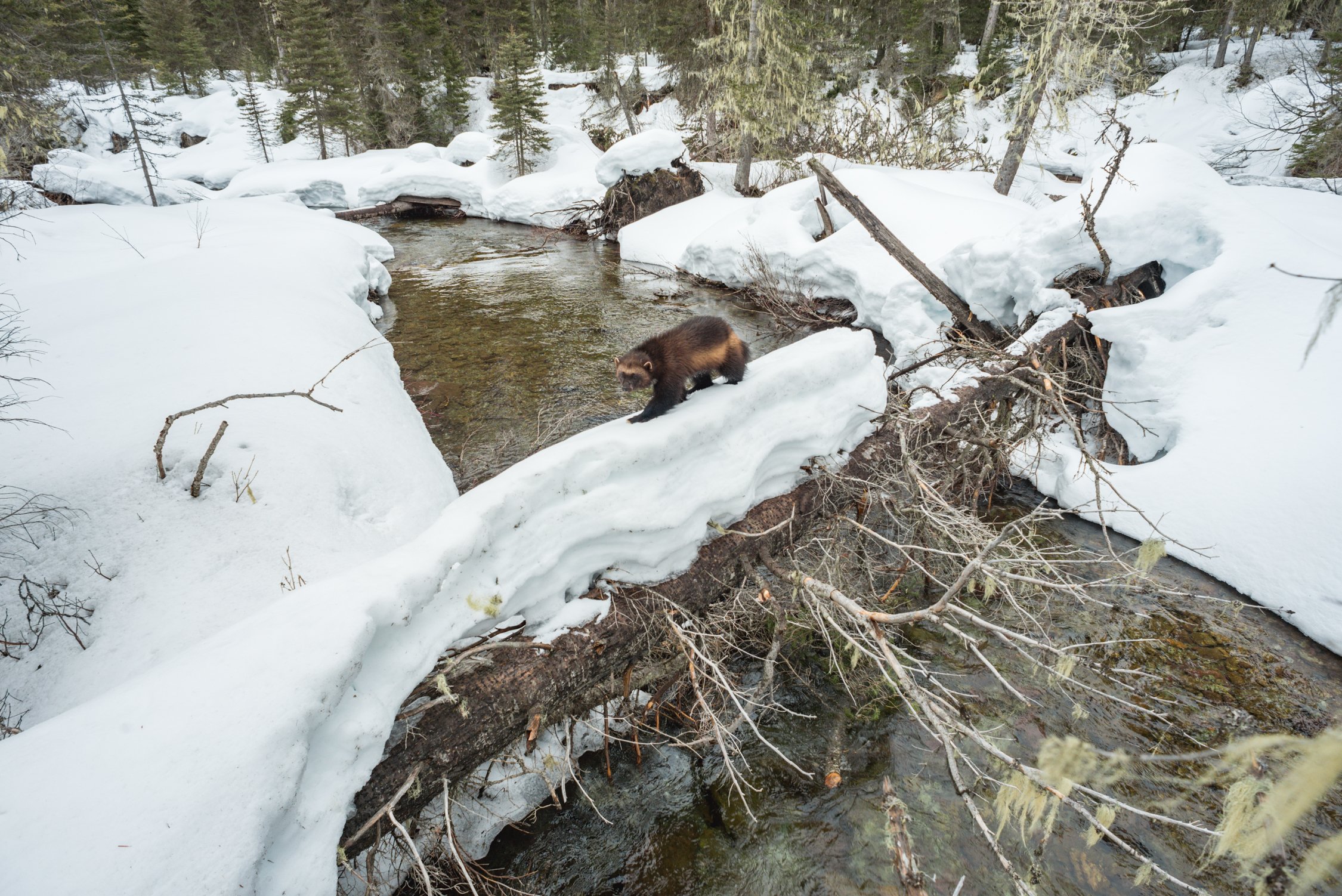

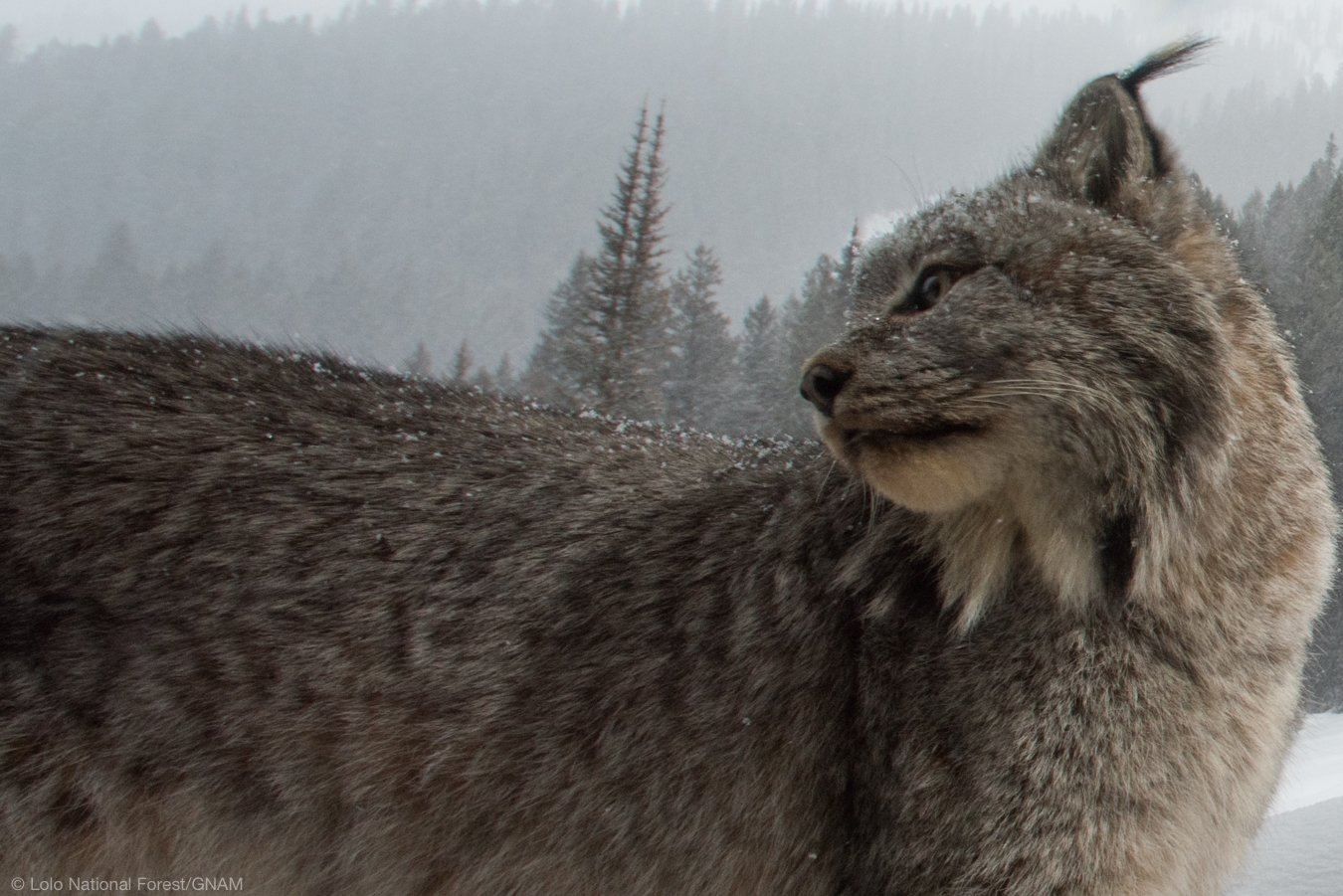




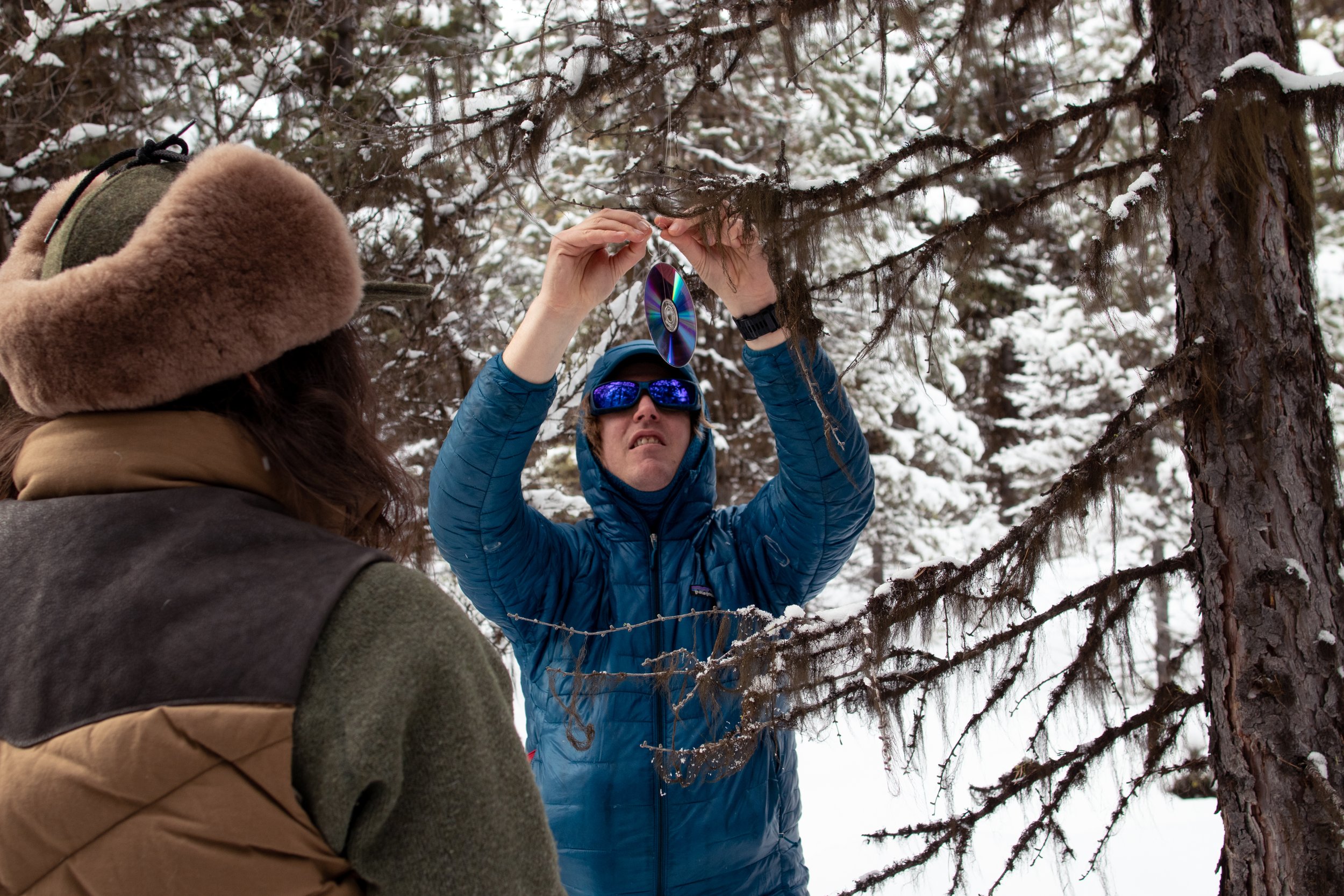
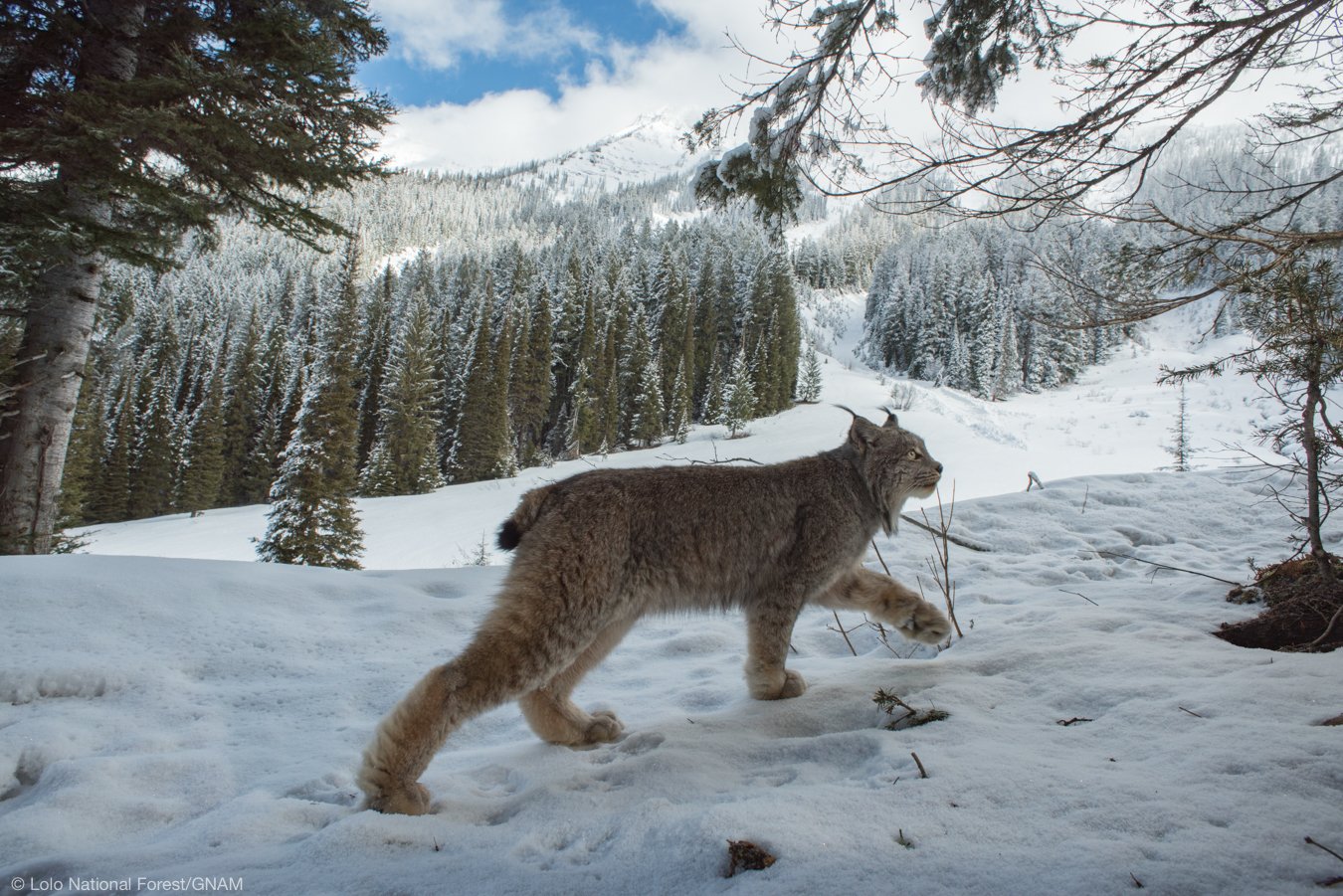




Features
Mission Mountain
By Rob G. Green, For BBC Wildlife
As Wolverines Battle to Survive, Warming Poses a New Threat
By Douglas H. Chadwick for National Geographic, Photographs by Steven Gnam
Balancing Fire, Felines and Forest Management in Montana
By Nick Mott of Montana Public Radio
Trail Camera Footage
Ever hear the call of a Canada lynx? Curious about the social lives of wolverines? The video footage captured during our study helps us learn more about the behaviors and needs of these rare carnivores.


